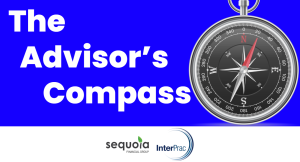
Updated: 7th March, 2025 | Garry Crole
In this article, I wish to discuss my opinions around how single advisor practices, and even partnerships of two or three advisors, should really be run. We’re talking about treating them like proper businesses, with a board (or at least some wise heads to bounce ideas off) and a solid plan.
But what I really want to drill down on today is revenue. Forget the old system of just seeing what’s left in the bank at the end of the month and calling that your income. The best practices – the ones that are truly sustainable and valuable – pay the director or advisor a salary.
Now, I know what some of you might be thinking: “But Garry, I am the business!” Fair enough, but hear me out. This isn’t about losing control; it’s about creating a structured approach to financial management. It enhances stability, improves cashflow and – crucially – makes the business far more attractive to potential buyers down the track. It makes it a business, not just a well-paid job.
So, what are the key benefits of this approach? Let’s break it down:
1. Predictable Income: Paying yourself a salary ensures a regular income stream. This is a boon for both your personal financial stability and the business’s financial planning. No more relying on boom-or-bust months.
2. Better Cash Flow Management: By setting a fixed salary and allocating revenue towards costs and target earnings, you maintain more predictable cash flows for both your family and the business. It also helps you understand your working capital requirements and enables more accurate budgeting.
I reckon a good starting point is to earmark 33% of your revenue for salary, 33% for operational costs, and let the remaining balance be the business’s profit. This allocation provides clear and disciplined financial management. It allows you to strive for a 40-45% return on revenue as profit.
The certainty of knowing your budget for operating costs is important. You start to become more disciplined in your spending on marketing, software, office rent, support staff costs, etc., which encourages you to budget and improve efficiencies, ultimately leading to higher profitability.
Now, a word on scale. My belief is a 1-3 advisor practice can achieve a 33% cost base. However, a 6+ advisor base who pays the advisor 33% of servicing revenue can achieve a 25% cost base, therefore taking profit to 41% of revenue.
3. Increased Business Value: A business with a structured financial model, where profits, expenses, and the owner’s salary are clearly defined, is much more attractive to potential buyers. They can easily assess the profitability and sustainability of the business. The fixed salary model and the predictable cost structure make the business more stable and less risky. A business with a 40%+ return on revenue is worth up to 10 times.
The Nitty Gritty
The starting salary for those considering this should be 33% of the service revenue for the last 12 months the advisor generated. If that’s not enough to live on, you need more revenue or need to pay yourself a dividend from profit every six months. The dividend is how you top up your wages. Don’t get emotional or let personal needs influence it too much.
Think about this: what would happen if you were disabled for six months and had to employ an advisor to come in and service your clientele? My belief is a salary of 33% with some incentive (profit share) is the remuneration you would pay.
Let’s say you’ve got a $400,000 practice. That would translate to a salary of around $130,000. At around $4,000 per client, that’s 100 clients, well within the industry’s expectation for a salaried advisor to service.
Financial Security and Tax Planning: Paying yourself a salary provides financial security. It prevents you from being in a situation where your personal income is dependent on the volatility of monthly revenues. This helps reduce the stress of financial uncertainty and allows you to focus on growing and improving the practice without worrying about how much money will be left at the end of the month.
Having a consistent salary can make tax planning easier, as it helps in forecasting personal income tax obligations and ensuring tax payments are up to date. It also allows for more straightforward tax compliance, as it’s easier to report salary payments and withholdings.
Too many advisors I have known over the years spend as they earn, and then the tax bill comes – it’s been horrendous. With a more predictable and structured business model, your business can also benefit from more consistent tax planning and potentially lower tax risks.
The Endgame
One day, we’ll all retire, and, as an industry veteran, seeing so many advisors leave the industry and not get a fair price for their customer book is sad. Selling a customer book as opposed to a business guarantees a lower price. One day, when you are no longer a buyer of customer books or other businesses but a seller will come, having five years of profit and loss of a business makes for an easy sale.
So, stop treating your practice like a personal piggy bank and start treating it like the valuable business it can be. Pay yourself a salary, structure your finances, and set yourself up for long-term success – both personal and professional. You’ll thank yourself in the long run, I guarantee it.